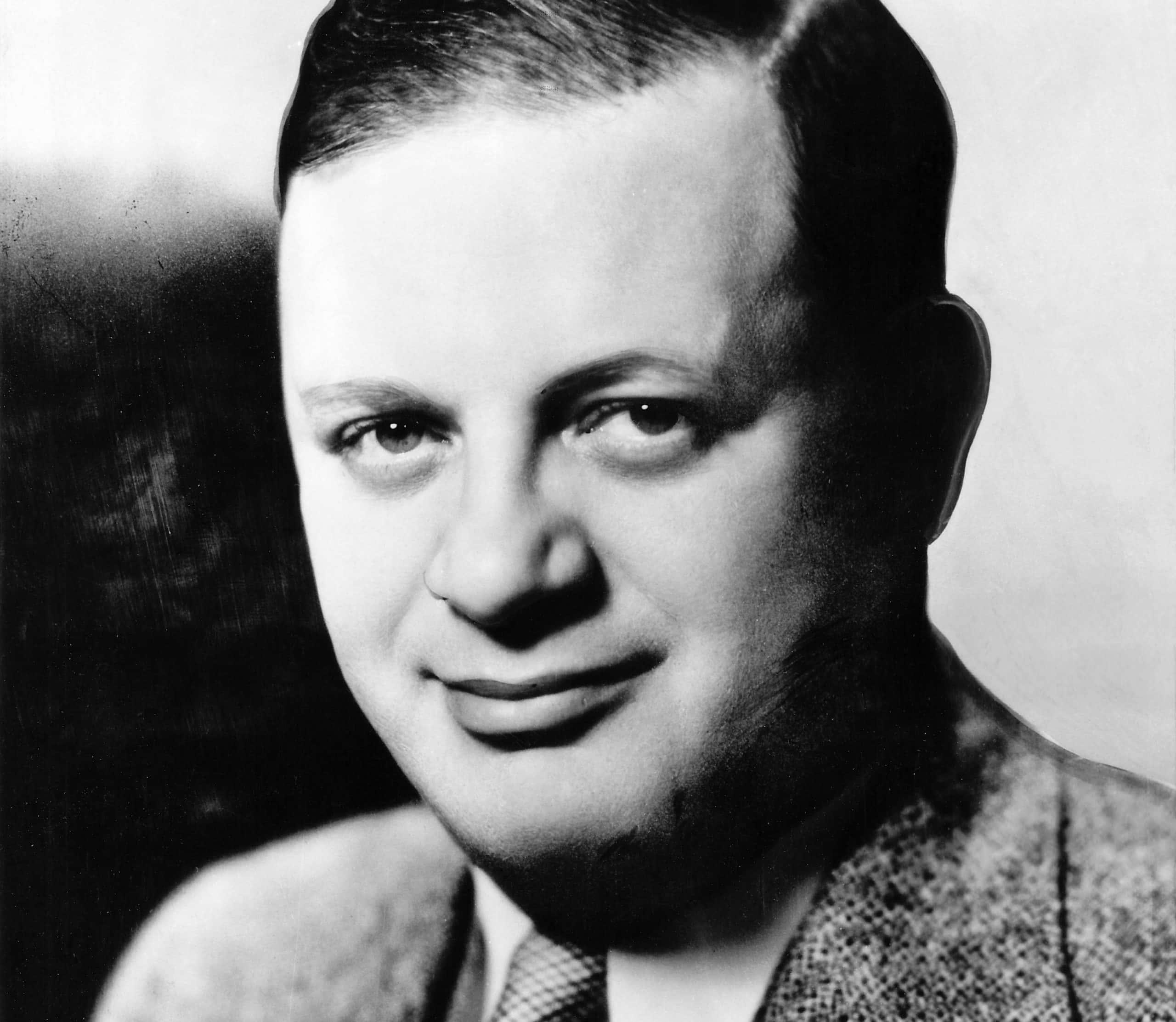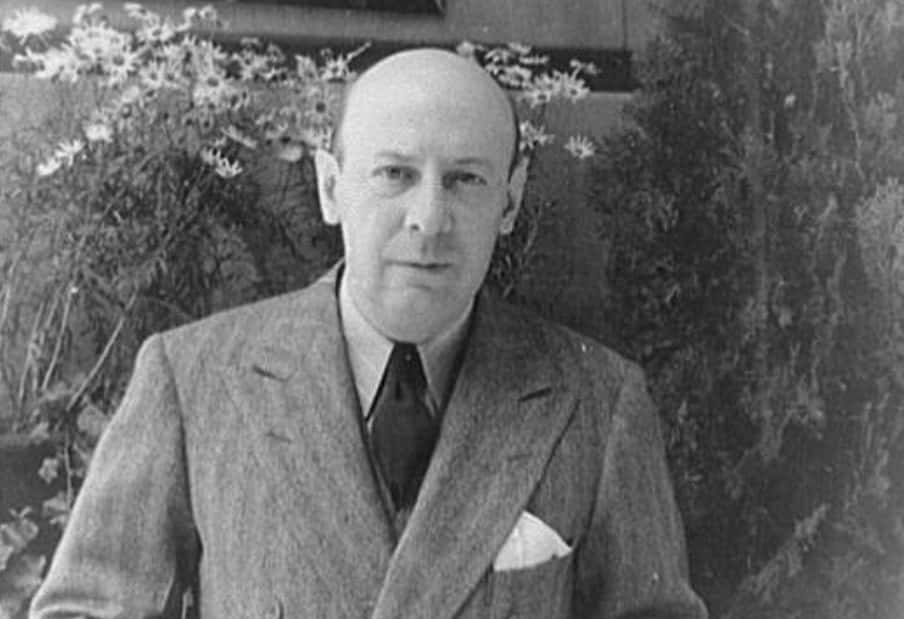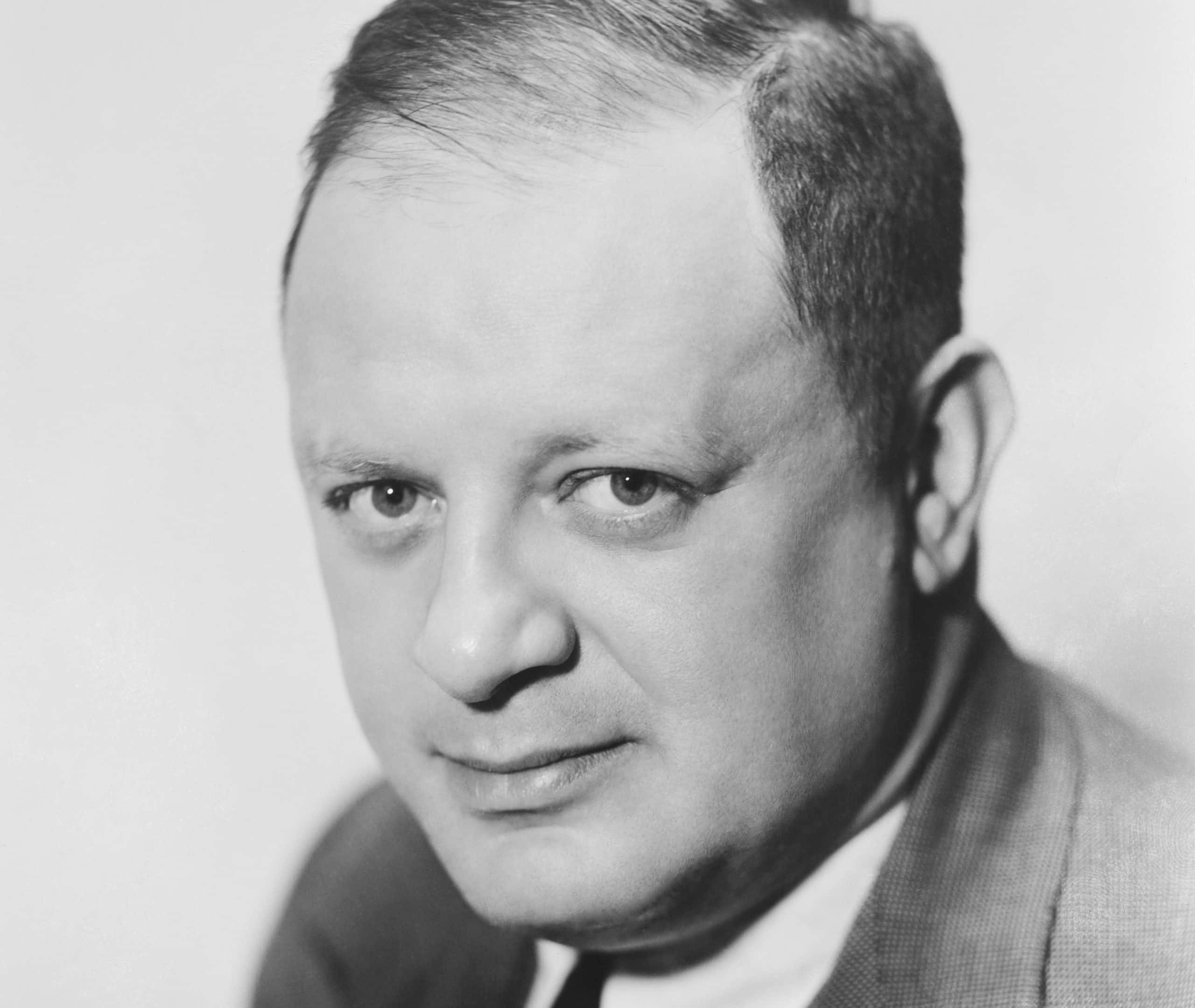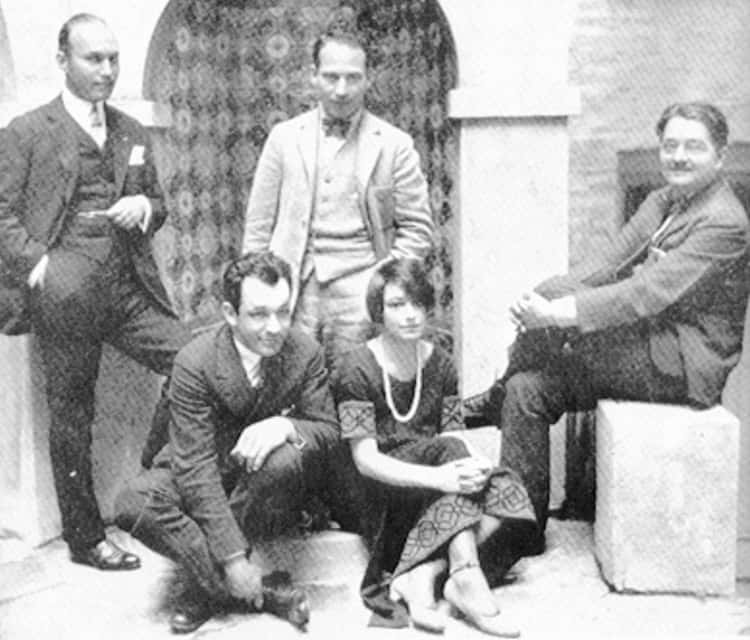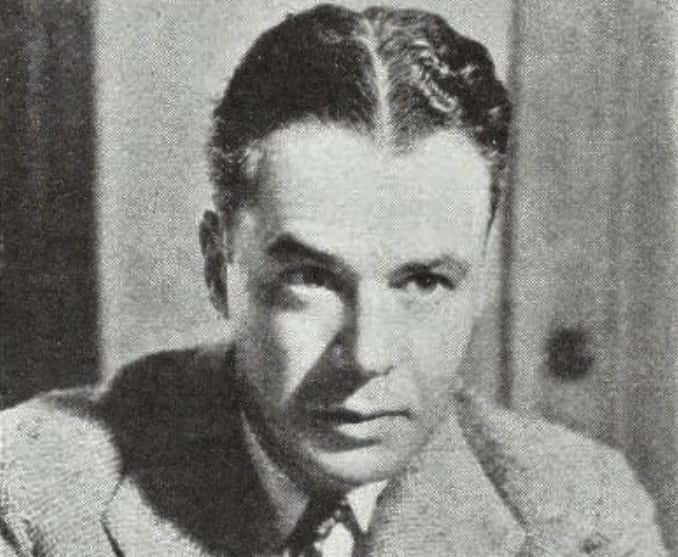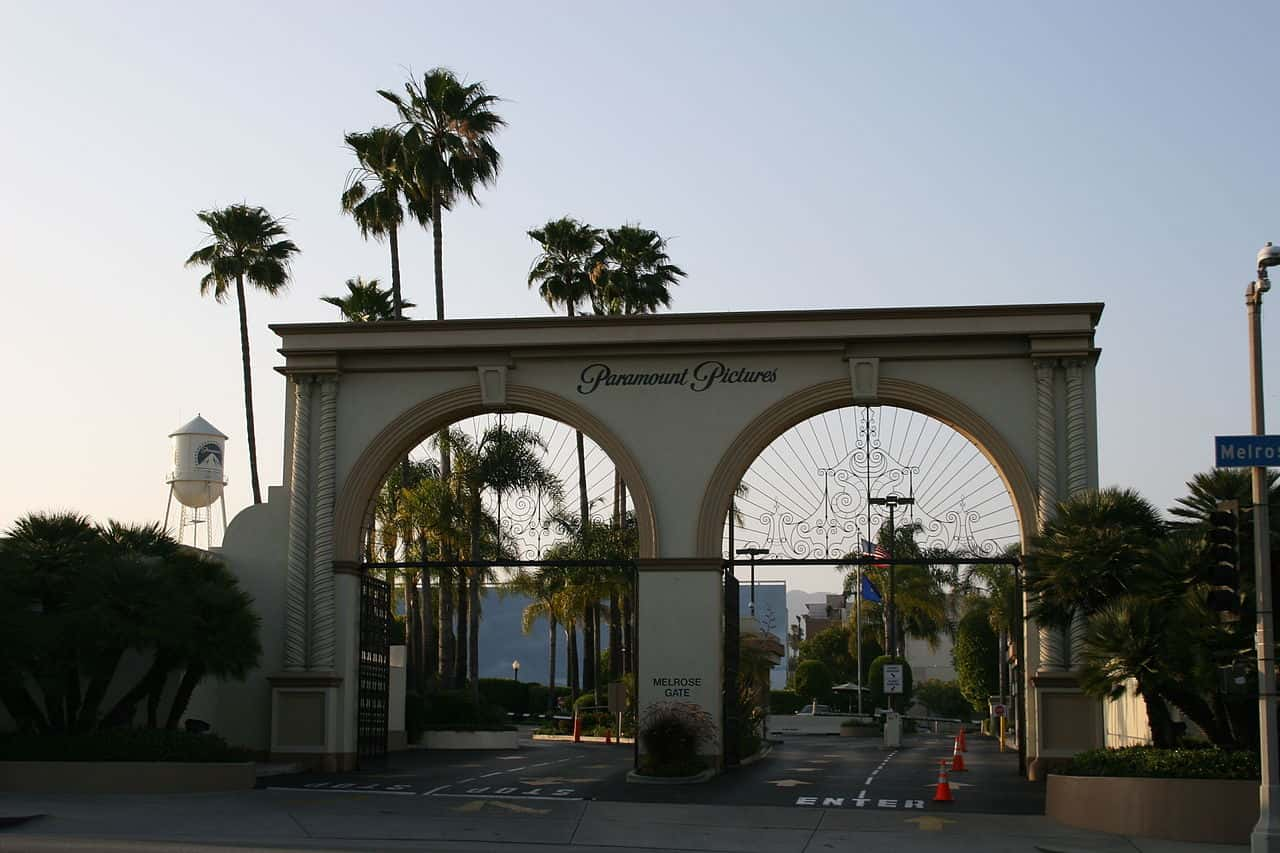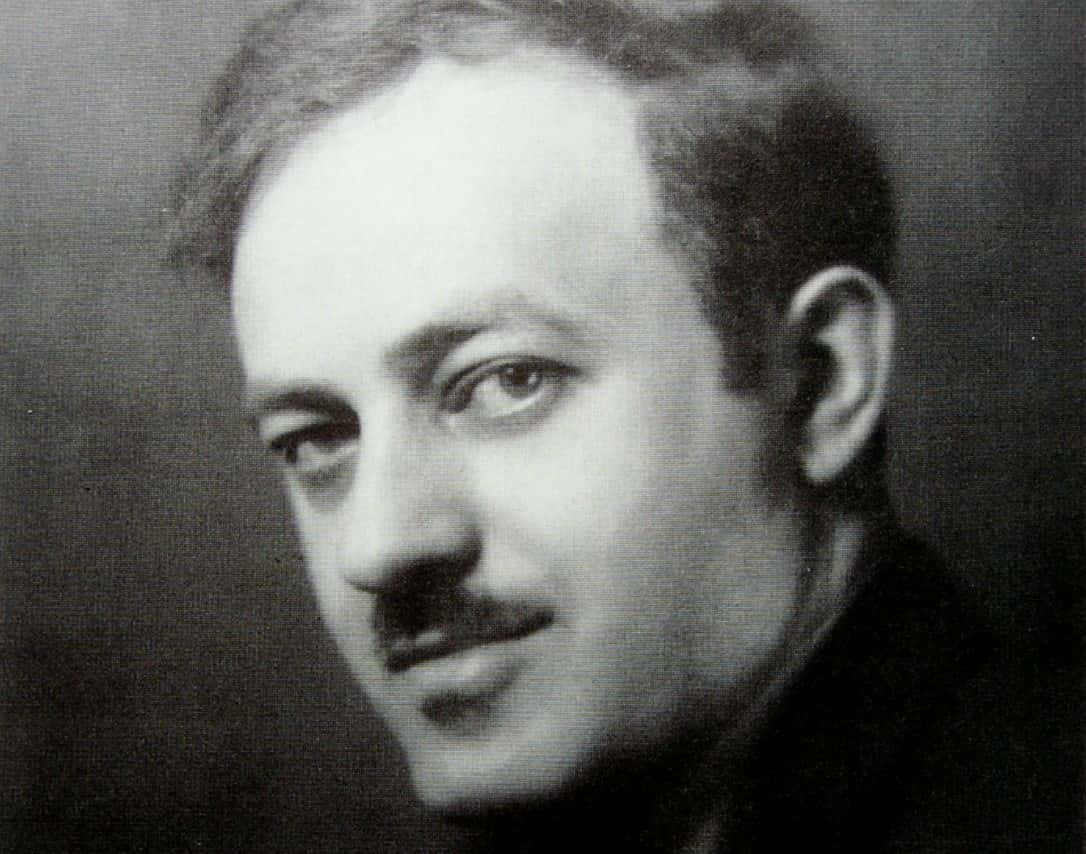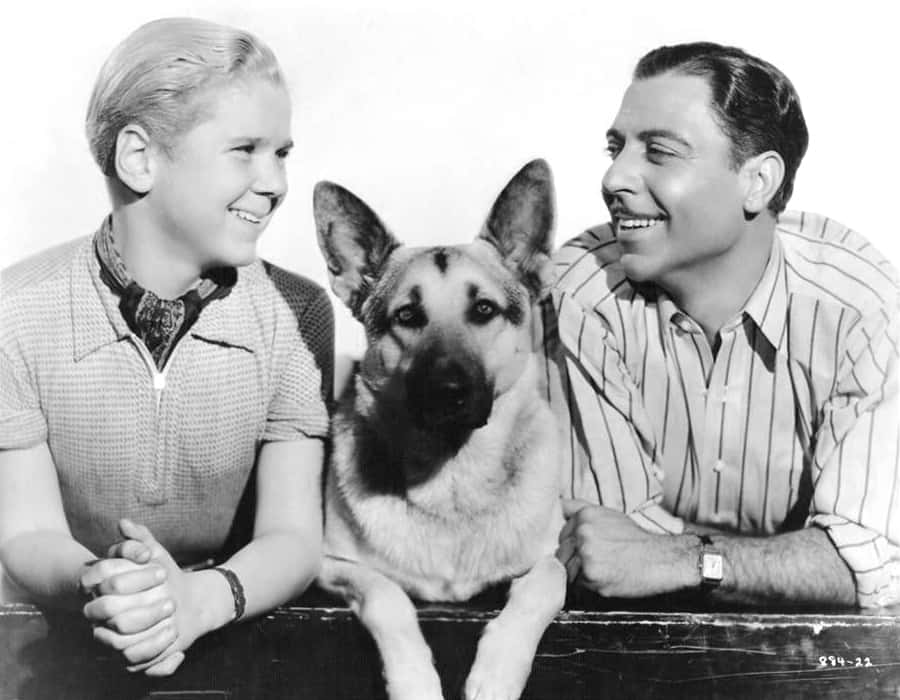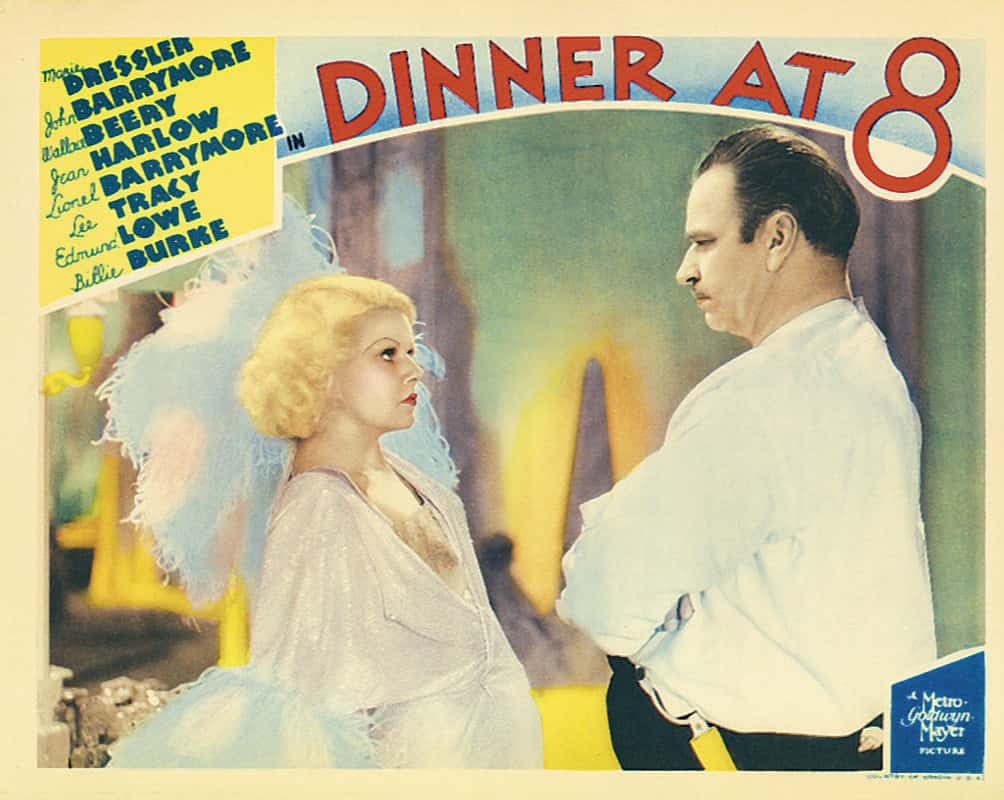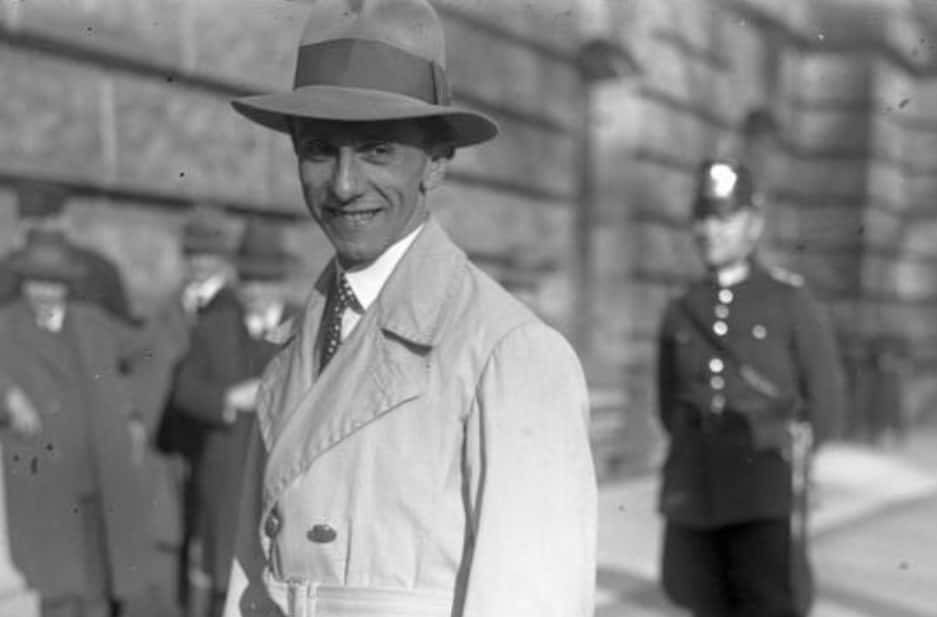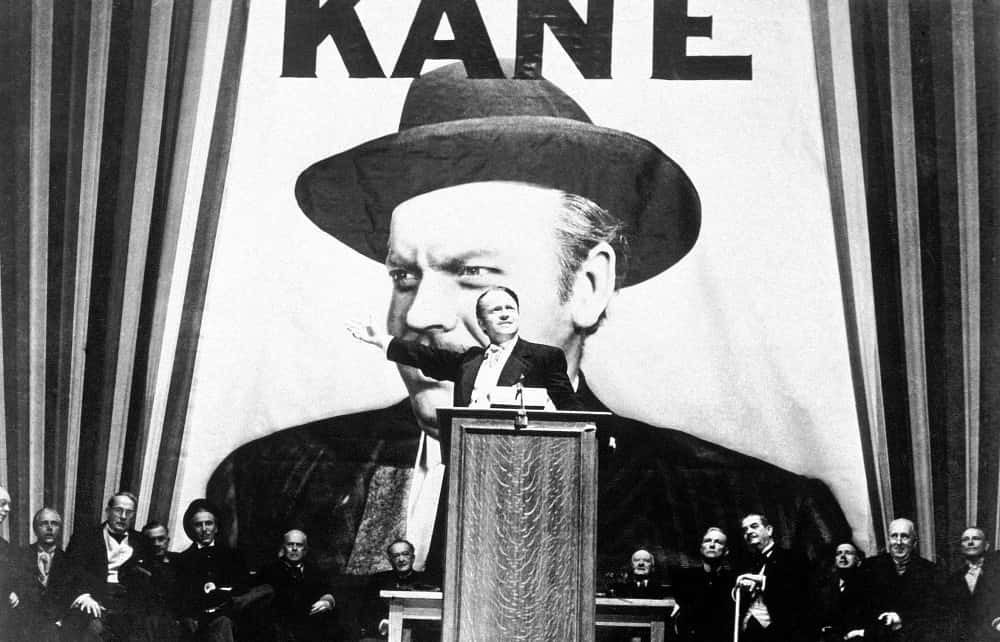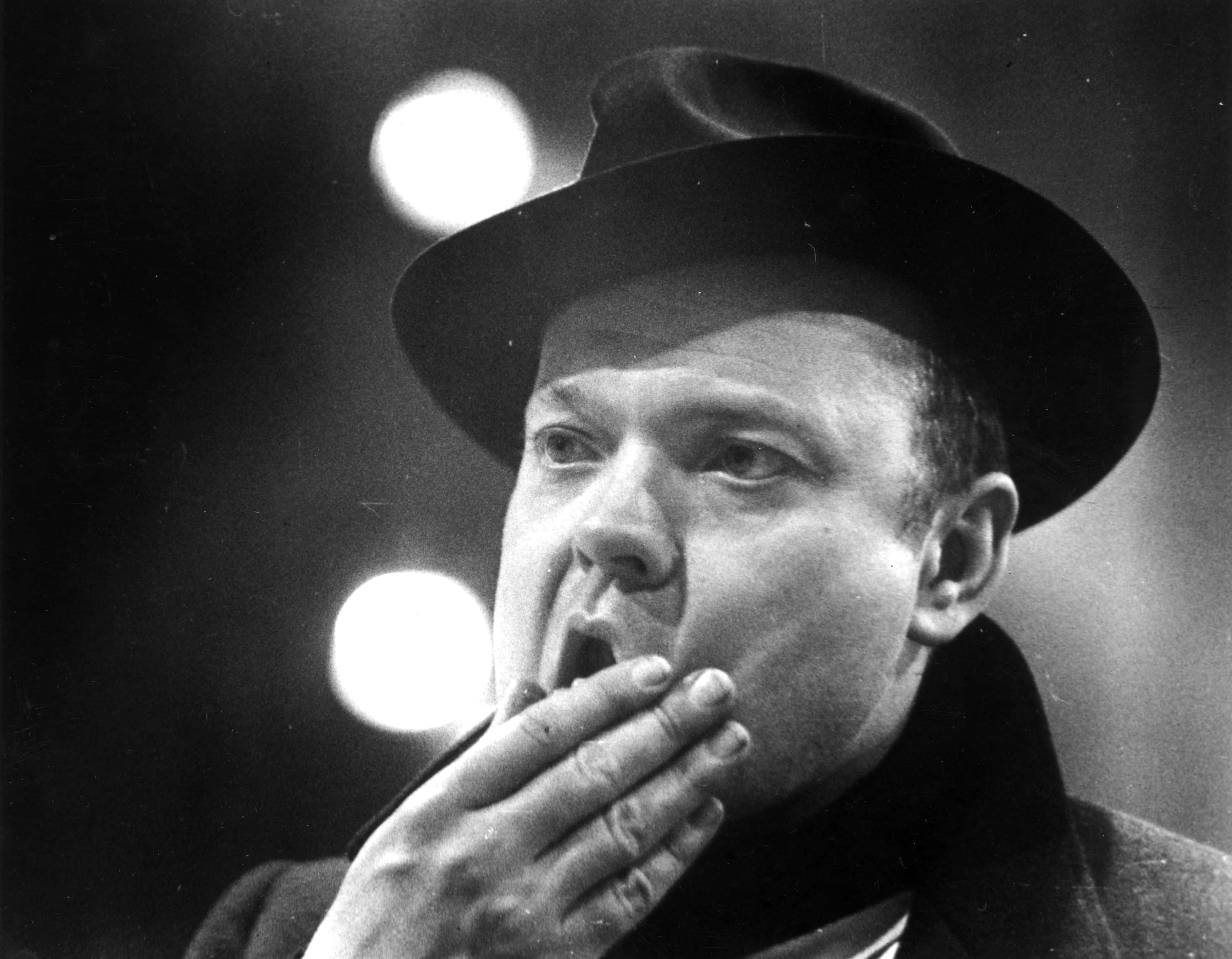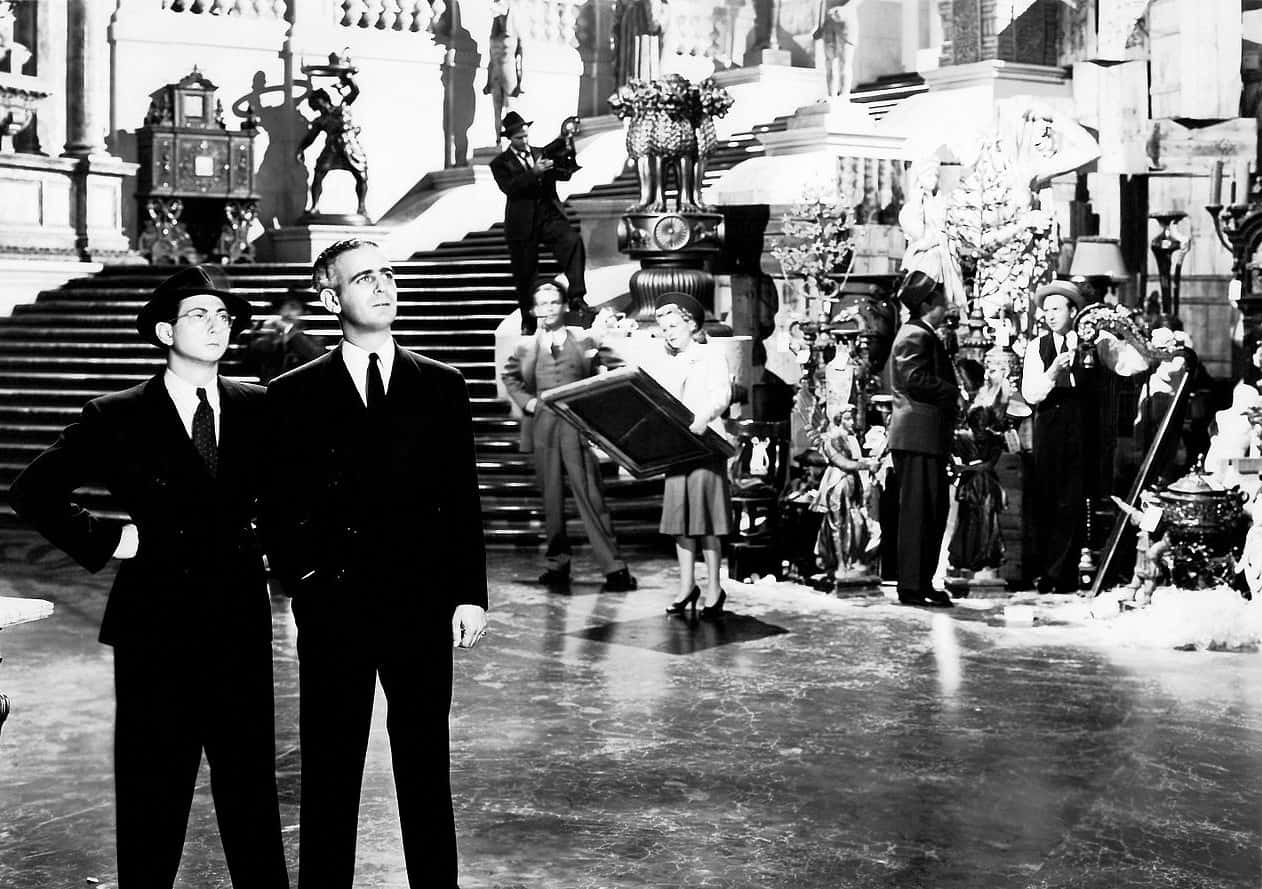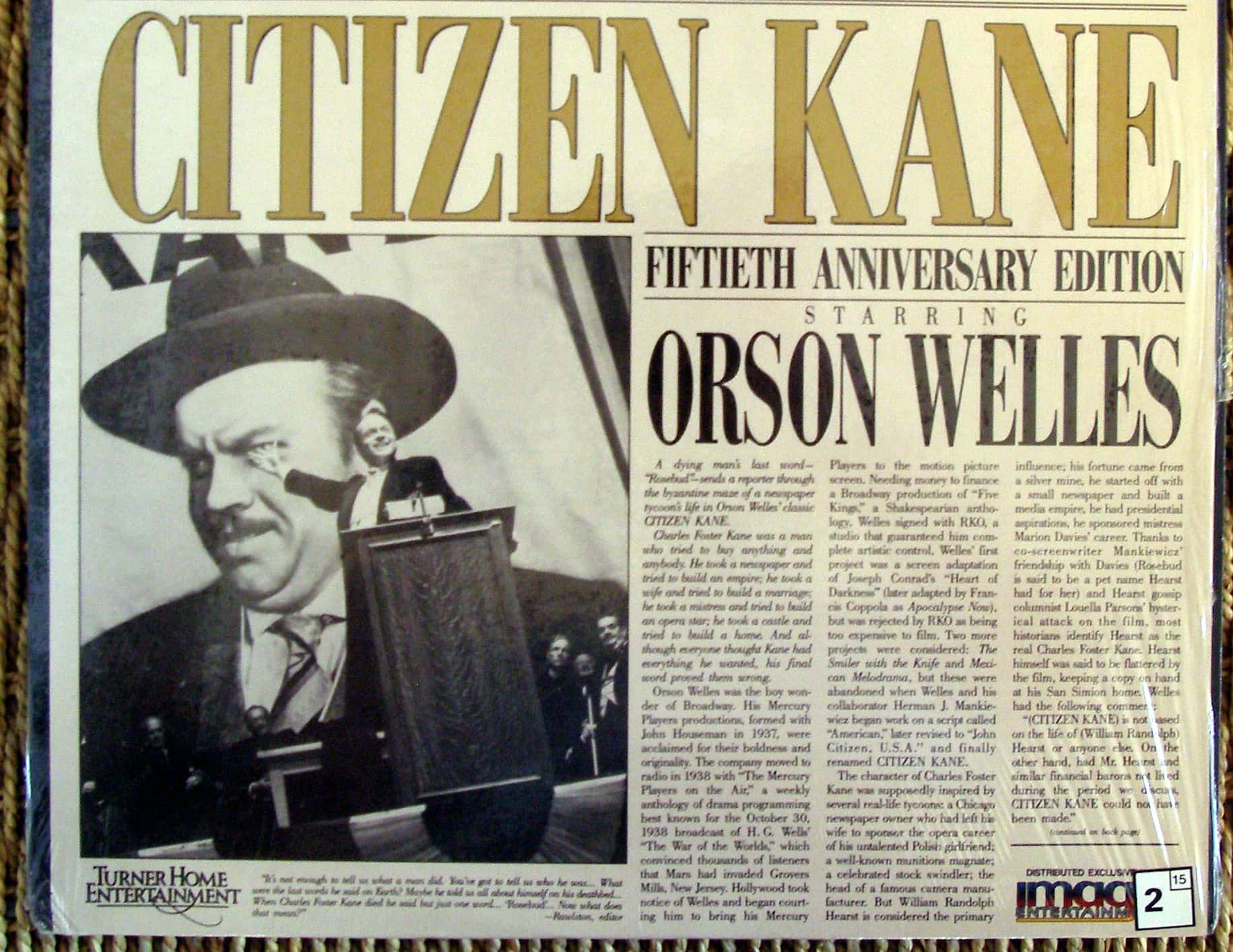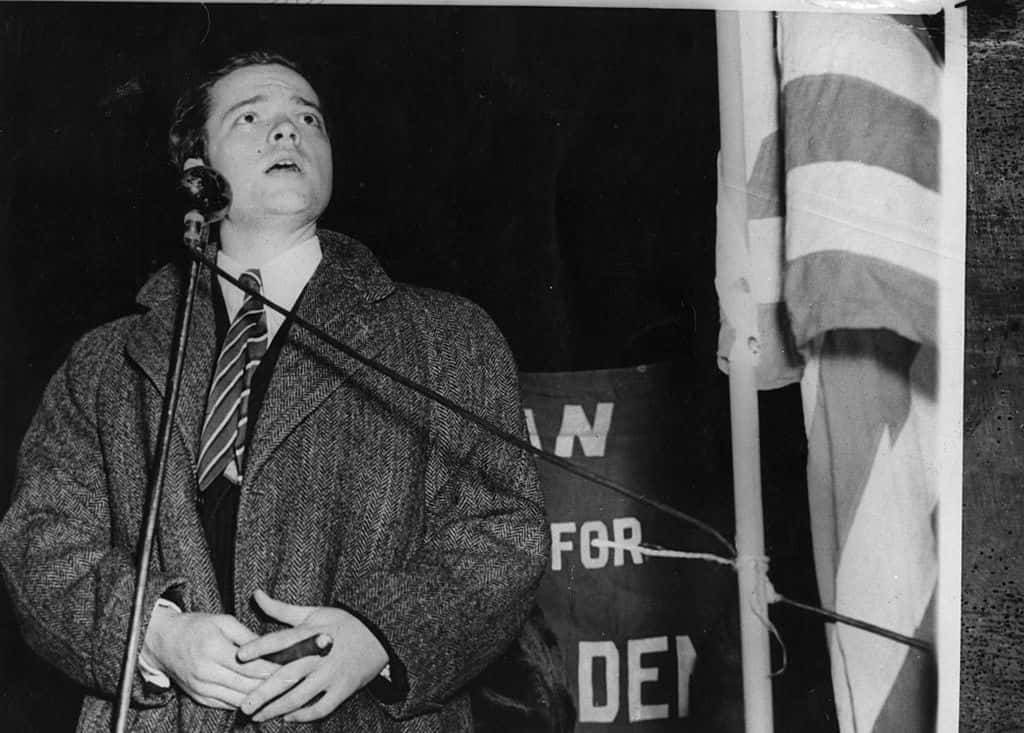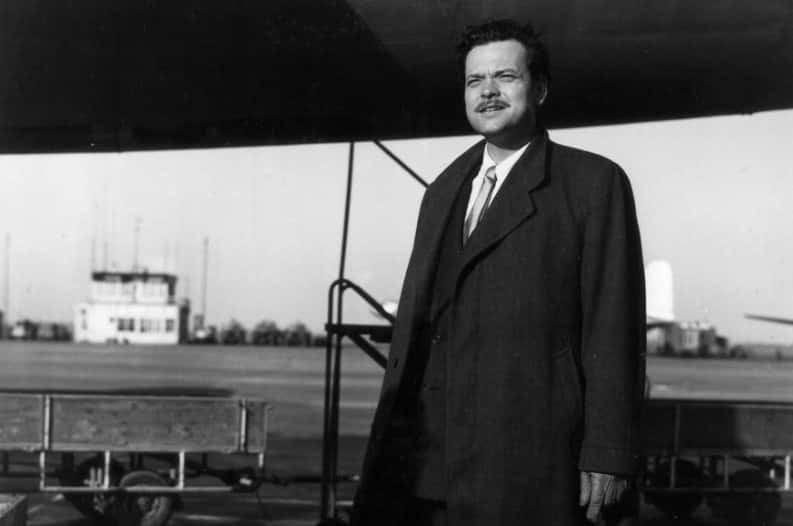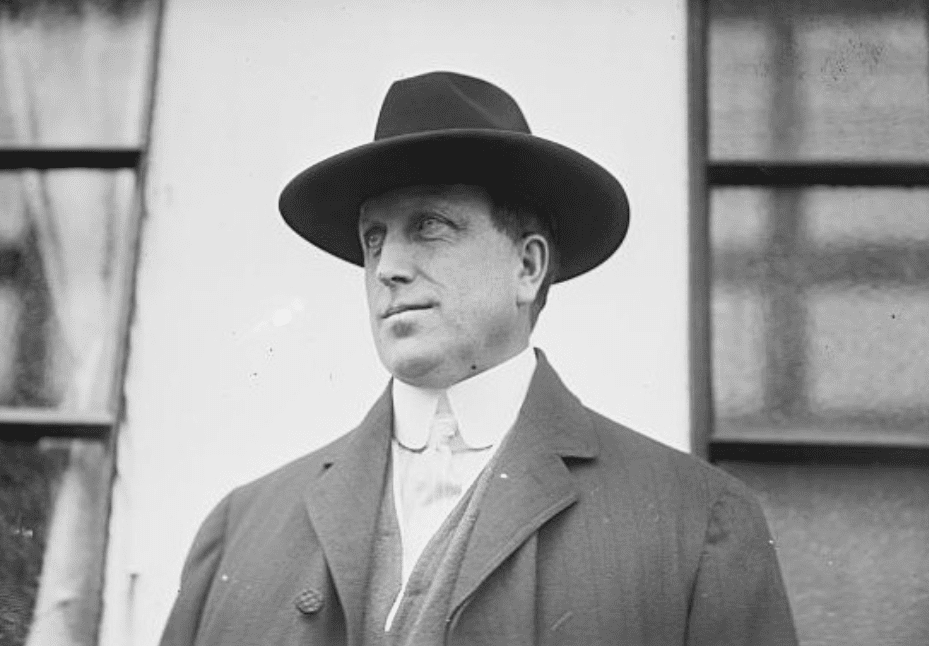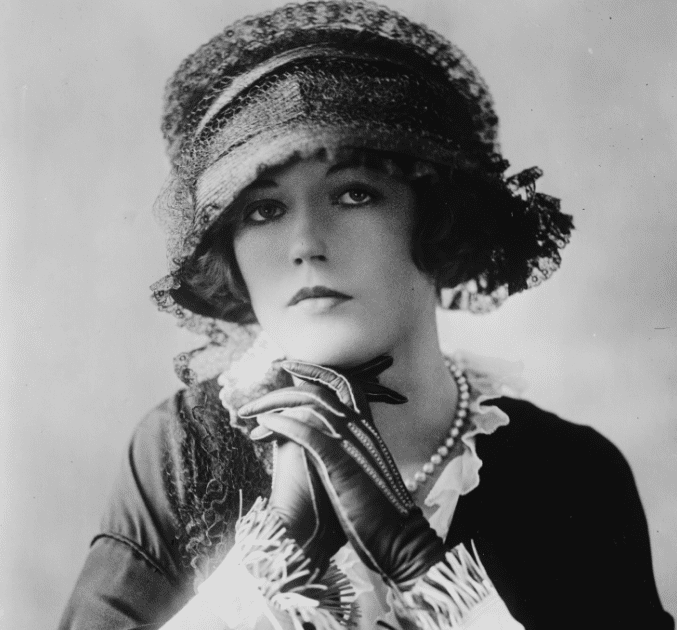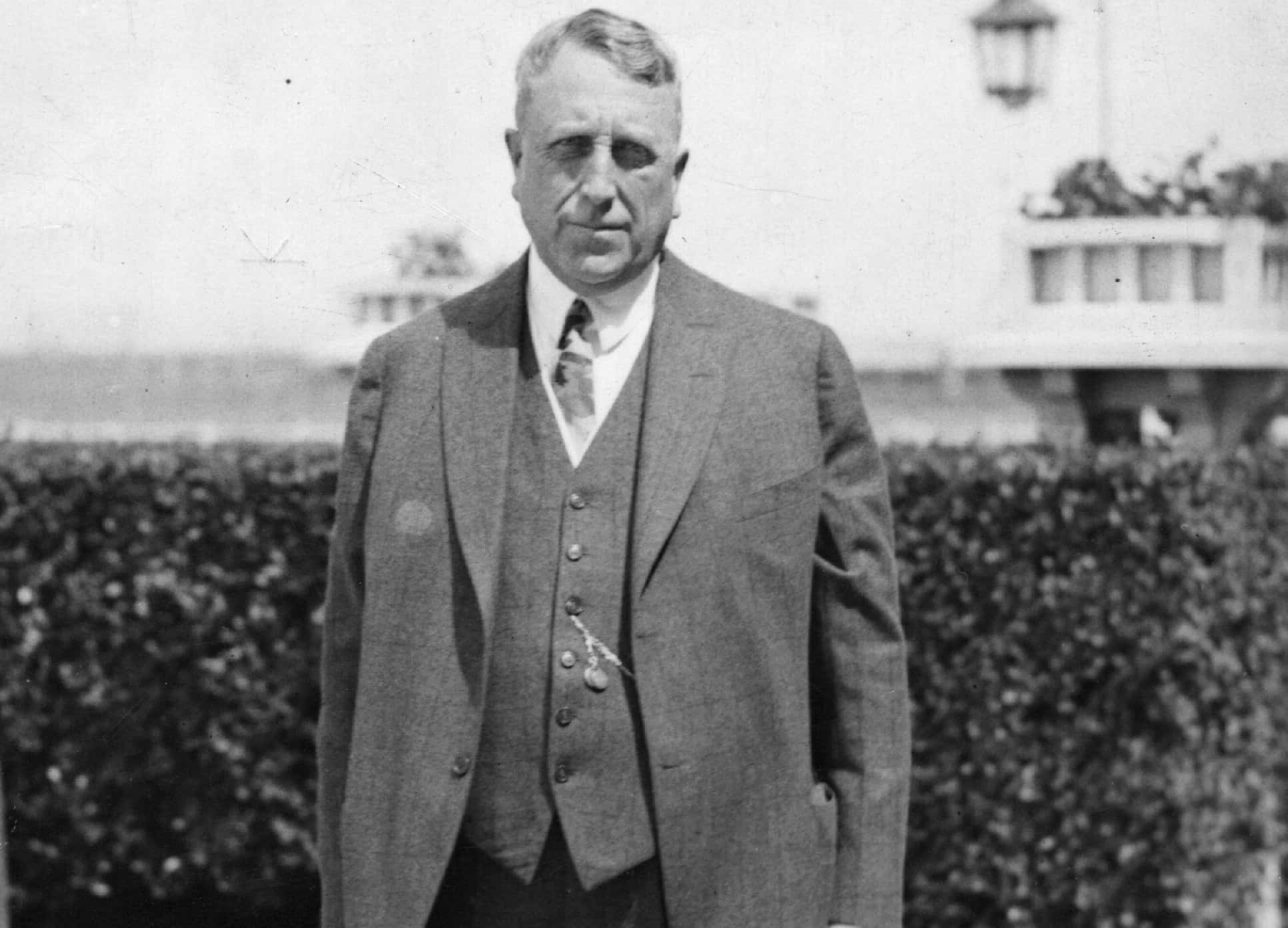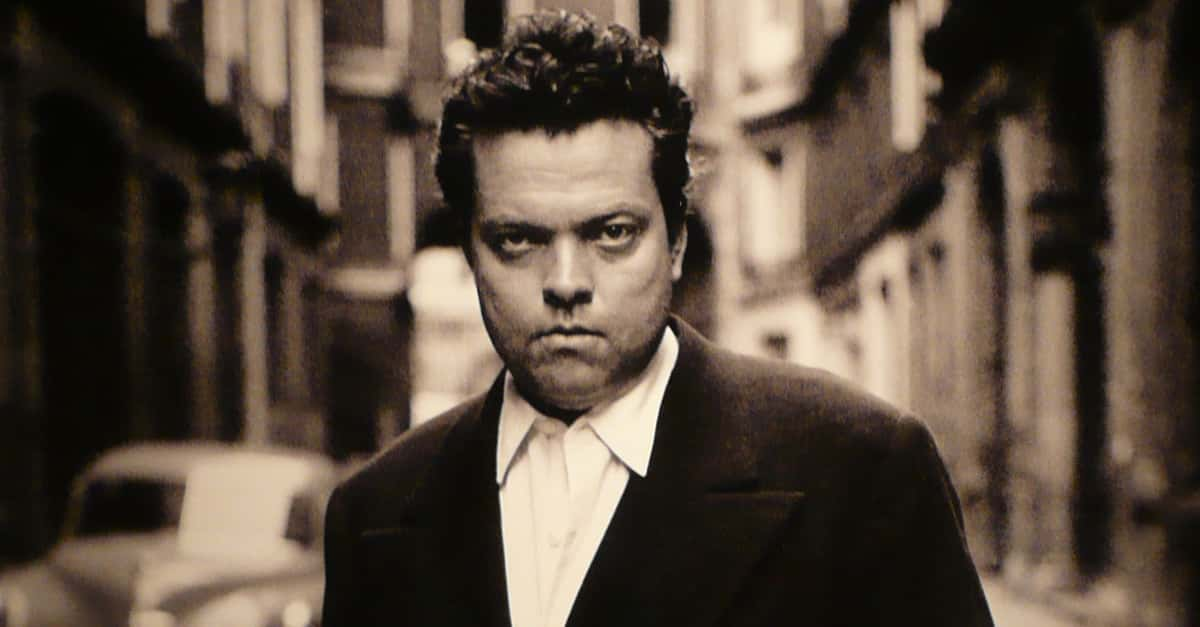Herman J. Mankiewicz—or “Mank” as he was known—was the American journalist-turned-screenwriter behind some of the most iconic Hollywood films of all time. His scathing on-screen wit and tragic internal struggles helped define the characteristics of Hollywood’s Golden Age and provided the fodder for classics like Citizen Kane and The Wizard of Oz. As David Fincher's Mank hits Netflix, let's dive into these woeful facts about Herman J. Mankiewicz, the “funniest man in New York".
1. He Was The Son Of Immigrants
Herman J. Mankiewicz was born in November of 1897, the son of Franz Mankiewicz and Johanna Blumenau. Not much is known about the Mankiewicz’s before they emigrated to the United States in the 1890s but one thing is for sure: They were likely fleeing the rampant anti-Semitism of the post-pogrom German states for the relative safety of the land of the free and the home of the brave.

2. His Father Was Tough
Most parents—hopefully, all parents—would be grateful to have an intelligent child who likes to read. Most parents. A volume of Dictionary of Literary Biography described Herman J. Mankiewicz as a “bookish, introspective child who, despite his intelligence, was never able to win approval from his demanding father". Suffice to say, his father’s impossible expectations would later take their toll on Mankiewicz, but more on that later…
3. He Was Born Into The “Academy”
From the time that he was born, Mankiewicz was destined for Oscar gold. When he was a wee little tyke, his family moved from New York City to Wilkes-Barre, Pennsylvania. They settled into a home on, get this, Academy Street…as in Academy of Motion Picture Arts and Sciences Street. Call it fate. Ok, not actually. I have no idea how “Academy” Street got its name. But it is auspicious.
4. He Went To An Ivy League School
Mankiewicz and his family moved back to New York City in 1913. Not too long after that, Mank went off to study philosophy at Columbia University. But what does an Oscar-winner-to-be do with a liberal arts degree? Why, become the managing editor of the American Jewish Chronicle before the age of 21, of course. Until, you know, life happens…
5. He Was A Veteran
Mankiewicz is better known for his wit and wordsmithing than anything else, but he was no lily-livered bard. Like J. R. R. Tolkien, Roald Dahl, and Ernest Hemingway, Mankiewicz was a war veteran. He served as a flying cadet and later as a private first class during the Great War—but his accomplishments in film later on would prove that the pen truly is mightier than the sword.
6. He Was Director Of The Red Cross
Ah, the International Red Cross and Red Crescent Movement, bringing relief from human suffering and strife everywhere they go. Naturally, this medical organization was just the place for…a budding writer? During the Great War Herman J. Mankiewicz served as director of the American Red Cross...News Service in Paris. What did you expect, he wasn’t a doctor! Though some might consider his words to be healing.
7. He Was A German…Correspondent
After the Great War, Mankiewicz couldn’t simply return to the American Jewish Chronicle. The young man must have fallen in love with his parents’ homeland—you know, the war-torn aesthetic aside—because he decided to return to Berlin as a foreign correspondent for the Chicago Tribune from 1920-22. But being an investigative journalist wasn’t the only thing occupying his time over there…
8. He Worked With A Famous Dancer
While in Europe, Mankiewicz wasn’t simply concerned with German politics and ongoings. All of that can get terribly stuffy and boring. Fortunately for him, a very famous person noticed his talents. While working in Berlin, “The Mother of Dance,” Isadora Duncan, hired Mankiewicz as her publicist! It was an…unreliable gig to say the least.
9. He Was Living Pay Check To Pay Check
Mankiewicz’s time spent in Germany wasn’t exactly a whirlwind European tour. He struggled to remain focused and was notoriously unreliable. So, this gig with the (in)famous Isadora Duncan must have been a godsend, right? Nope. Duncan was, herself, notoriously unreliable, and her paychecks to Mankiewicz were…infrequent, to say the least. The gig only lasted a couple of months.
10. His Marriage Was A Quiet Affair
Long before he arrived in Hollywood, Mankiewicz had already earned himself a reputation as a heavy drinker, insatiable gambler, and tireless partier. But there was one seemingly peaceful aspect of his life. After returning home from the Great War, Mankiewicz married Sara Aaronson. No tawdry affairs or secret flings to report here…I think.
11. He Was A True New Yorker
Mankiewicz wasn’t destined to remain in Berlin indefinitely. The Big Apple was calling his name from across the ocean. When he returned to New York, he took up a position as a reporter for the sensationalistic New York World and contributed articles to Vanity Fair and other publications. But the facts can be just so boring to write about…
12. His First Play Was A Flop
Mankiewicz wasn’t satisfied with just reporting the news—his writing talents required more interesting subject matter. So, Mankiewicz decided to try his hand as a playwright and, in 1926, penned the three-act comedy, The Good Fellow. Unfortunately for Mankiewicz, the play was a flop and closed after seven tepid performances. But you know what they say, if at first you don’t succeed…
13. He Had No Luck On Broadway
Hot off the heels of his The Good Fellow flop of a Broadway debut, Mankiewicz partnered with Marc Connelly to write The Wild Man of Borneo. Much to his surprise, this second play was…another flop. Tough crowd, eh? But you know what they say about those who can’t do—they teach…or criticize those who do endlessly and mercilessly…
14. He Was The O.G. Theatre Critic
You would think that, after two consecutive Broadway flops, Mankiewicz would have had just about enough of the theatre world. Or maybe he was just in the mood to get some revenge on those thespians. Mankiewicz moved over to The New York Times drama department and shortly thereafter became the first dedicated theatre critic for The New Yorker. Too bad he couldn’t retroactively write himself some good reviews.
15. He Was The Funniest Man In New York
The Big Apple. Empire City. The City that Never Sleeps. New York City is—and has been for a long time—home to some very, shall we say, interesting characters. And you can count Herman J. Mankiewicz among them. Fellow writer and society sleuth, Alexander Woollcott called his friend, Mankiewicz, the “funniest man in New York". And he had some competition…
16. He Was A Member Of An Exclusive Club
Witches have covens. Wolves have packs. Writers have…round tables? Mankiewicz was a member of the Algonquin Round Table club of “writers, critics, actors, and wits". This group of highly intellectual literary buffs was less of a literary movement and more of a gossipy and witty clique. “On Tuesdays, we wear pink". Not actually. But still, “You can’t sit with us!”
17. He Moved Out To Los Angeles
Alexander Woollcott wasn’t the only one who was impressed with Mankiewicz’s wit and command of the English language. The legendary and pioneering film producer Walter Wagner took note of Mankiewicz all the way from Los Angeles. In fact, Wagner liked Mankiewicz’s writing so much that he offered him a job…in Hollywood. “I hopped off the plane at LAX with a dream and my cardigan". Well, pretty much.
18. He Was The “Scenario” Man
Unlike Broadway, Hollywood offered Mankiewicz immediate success. After just a month, Mankiewicz was making the equivalent of almost $6,000/week in La La Land. And not too long after that, he was the head of Paramount’s scenario department…whatever that means. If I were Mankiewicz, I would have renamed the department to the Situation Department just so I could call myself “The Situation".
19. He Brought His Friends With Him
Mankiewicz’s unique sense of wit and sarcasm quickly became an instantly recognizable and beloved style amongst movie-going audiences. It wasn’t long before Mankiewicz was in charge of writer recruitment at Paramount. The hard-drinking Mankiewicz quickly went about recruiting other New York newsroom writers who shared his affinity for drink and wit. He was like the Godfather of screenwriters.
20. He Made Offers No One Could Refuse
Mankiewicz, being the Godfather of screenwriters, made some offers that his fellow writers just couldn’t refuse. Like this one that he sent in a letter to his good friend Ben Hecht: “Will you accept 300 per week to work for Paramount? All expenses paid. 300 is peanuts. Millions are to be grabbed out here and your only competition is idiots. Don’t let this get around".
21. He Was A Prolific Writer
Needless to say, Ben Hecht accepted Mankiewicz’s ludicrously lucrative offer. But no matter what Mankiewicz said about the competition in Hollywood, you still had to sing for your supper. Between 1927 and 1929, Mankiewicz worked on over 25 films. Hecht described Mankiewicz as “Promethean” in his work. And he had even more praise for the screenwriting wizard…
22. Some Compared Him To Voltaire
So, we know that one Alexander Woollcott already dubbed Mankiewicz the “funniest man in New York". But the nominal praise didn’t end there. Ben Hecht referred to his writer-peer as the “Central Park West Voltaire". That’s pretty high praise for a screenwriter. Unfortunately, Mankiewicz didn’t live to a jolly old age quite like Voltaire…
23. He Was Picky About The Films He Wrote
Despite being a prolific writer—or “Promethean” in the words of Hecht—Mankiewicz didn't just work on any old film. When Paramount forced Mankiewicz to write the script for a commercial Rin-Tin-Tin film, he responded by submitting something that was…less than family-friendly. Suffice to say that the German Sheppard, Rin-Tin-Tin, wasn't exactly heroic in Mankiewicz’s script…
24. He Had A Dark Sense Of Humor
No one likes being told what to do. Least of all hotshot Hollywood screenwriters like Herman J. Mankiewicz. In response to Paramount ordering Mankiewicz to write a Rin-Tin-Tin film, Mankiewicz submitted an interesting script. He had the famous heroic dog open the film by running scared from a mouse and close the film by taking an infant into a burning house…Paramount did not produce the film.
25. He Didn’t Get A Lot Of Credit
Mankiewicz wrote, edited, and produced more films than some people have even watched. For his Herculean efforts, he received…no credit. Mankiewicz was at least half of the genius responsible for classics such as Monkey Business and Horse Feathers, but seeing his name on the marquee wasn’t to be. He did, however, get credit for Dinner at Eight.
But it wasn't all forgotten films from the Golden Age. I bet there’s at least one movie you didn’t know he was largely responsible for…
26. He Was Erratic
It’s difficult to fully wrap one’s head around Mankiewicz’s curious blend of misanthropy, humor, and wit. Scott Eyman writing for The Wall Street Journal described Mankiewicz as “erratic, even by the standards of Hollywood drunks". His iconoclastic personality and style of writing is what made him so successful—but also what ruined him in the end.
27. He Was “Verboten”
There might have been a good reason for Mankiewicz not receiving credit on so many of the films he helped to create. In 1935, in the lead up to WWII, The New York Times reported that Joseph Goebbels, as Minister of Education and Propaganda, banned Mankiewicz’s films from screening in German theaters unless his name was removed from the credits.
It was hard out there for a Mank—and things weren't about to get any easier…
28. He Fell On Hard Times
Mankiewicz fell prey to his own success…and wit. The consummate cynic, Mankiewicz drank heavily and gambled frequently. He became just as well known for his writing as for his bad behavior. It was all too much for Paramount and they eventually had to let him go. There’s no business like show business, folks. One day you’re in and the next day, you’re out. Like down and out…
29. He Worked As A Waiter
Times were definitely tough for Mankiewicz in the 1930s. So tough, in fact, that he had to get a job as a waiter. Seriously…but not actually. Mankiewicz returned to New York in 1932 to take a part as a waiter in a Broadway play called Blessed Event. Fortunately for Mankiewicz, Blessed Event fared better than his own flopped Broadway plays, and redemption was just around the corner…
30. He Was Involved In The Greatest Film Of All Time
No film—with the exception of maybe The Godfather—tops more “Best Films of All Time” lists than Citizen Kane. The seminal work is often associated with one man and one man alone…Orson Welles. But did you know that Herman J. Mankiewicz is at least partially responsible for Citizen Kane? To call his involvement in this Hollywood classic controversial doesn’t quite explain the situation…
31. Citizen Kane May Have Been His Brainchild
Countless cinephiles consider Citizen Kane to be Orson Welles’ vanity project. Most people just accept that Welles wrote, produced, and directed Citizen Kane and starred as its titular character. But, even when the film first debuted, there was some, how should we say, doubt about whose brainchild this instant classic really was.
 Wikimedia Commons, RKO Radio Pictures
Wikimedia Commons, RKO Radio Pictures
32. He Was Left Out Of The Credits
It's not only cinephiles saying Citizen Kane is Welles’ and Welles’ alone. In promotional material all across the nation, RKO, the film’s original distributor, called Orson Welles the “one-man band, directing, acting and writing". That’s a real slap in the face when you hear what Mankiewicz had to say about how this film came into being…
33. He Claimed To Have Written Citizen Kane
Mankiewicz is at least half responsible for writing Citizen Kane. In a letter to his father, Mankiewicz wrote, “I'm particularly furious at the incredibly insolent description of how Orson wrote his masterpiece. The fact is that there isn't one single line in the picture that wasn't in writing—writing from and by me—before ever a camera turned".
34. He Was Eventually Given Credit For Citizen Kane
Mankiewicz wasn’t the only one giving himself credit. Film biographer David Thomson said, “No one can now deny Herman Mankiewicz credit for the germ, shape, and pointed language of the screenplay". I’m not sure what exactly a “film biographer” is but I’m going to go ahead and agree with him. Especially in light of what we now know…
35. He Got Into It With Orson Welles
It’s bad enough that RKO was trumpeting Welles’ “one-man-band” performance all over the country. To make matters worse, film columnist Louella Parsons quoted Welles at the time as having said, “I wrote Citizen Kane". Apparently, this made Mankiewicz very, very angry. And, uh, yeah, I can definitely see why it would…
36. He Made Welles Retract His Statement
Orson Welles later walked back the Louella Parsons’ quote, saying that he was planning on sharing credit with Mankiewicz all along. I don’t know about you, but that just sounds to me like a cheater who got caught red-handed. And the accusations weren’t over quite yet. Mankiewicz had some very scandalous things of his own to say…
37. He Accused Welles Of Bribery
Is it plagiarism if you offer the original author a bunch of money to use their writing? I think, technically, that makes it publication but I’m not a lawyer. And we’re going to need one. Mankiewicz accused Welles of bribing him with $10,000 if he agreed to let Welles take full credit for the script of Citizen Kane. Hm? Some cash, or a lifetime of fame and glory? But, again, Welles fired back…
38. He Almost Got An Apology From Welles
Welles responded to Mankiewicz’s accusations by saying, “God, if I hadn't loved him I would have hated him after all those ridiculous stories, persuading people I was offering him money to have his name taken off...that he would be carrying on like this, denouncing me as a coauthor, screaming around". All this was just what they said on the matter—what does the evidence say?
39. He Almost Definitely Wrote Citizen Kane
Audiences, film historians, and even casual cinephiles acknowledge that Citizen Kane is based on the life of media mogul William Randolph Hearst. Now, with that in mind, it begins to look likelier and likelier that Welles wasn’t the sole author of Citizen Kane. In fact, it looks quite likely that the whole thing may well have been Mankiewicz’s idea…
40. He Was Connected To Hearst
Mankiewicz was friends with Hollywood prodigy Charles Lederer. Now, Lederer was the nephew of the questionably-talented actress, Marion Davies. And Marion Davies was the mistress and love interest of one media mogul, William Randolph Hearst. This web of Hollywood who’s-who came full circle when Mankiewicz, through Lederer and Davies, met Hearst…
41. He Swapped Stories With Hearst
Hearst, being a newspaper man, was a fan of Mankiewicz’s. In her book For Keeps, film critic Pauline Kael noted that Mankiewicz “found himself on story-swapping terms” with Hearst. Now, anyone who knows a screenwriter knows that any personal story they tell them likely won’t stay secret for long. It will likely end up on the big screen, entertaining audiences all over the world. It seems like Hearst didn’t know that…
42. He Was Not Fond Of Hearst
According to biographer Richard Meryman, Mankiewicz was not overly fond of Hearst. In his biography on Mankiewicz, Meryman claimed that Mankiewicz came to see Hearst as a “finagling, calculating, [m]achiavellian figure". That sounds very much like the main character in Citizen Kane if you ask me…or even if you ask Hearst himself.
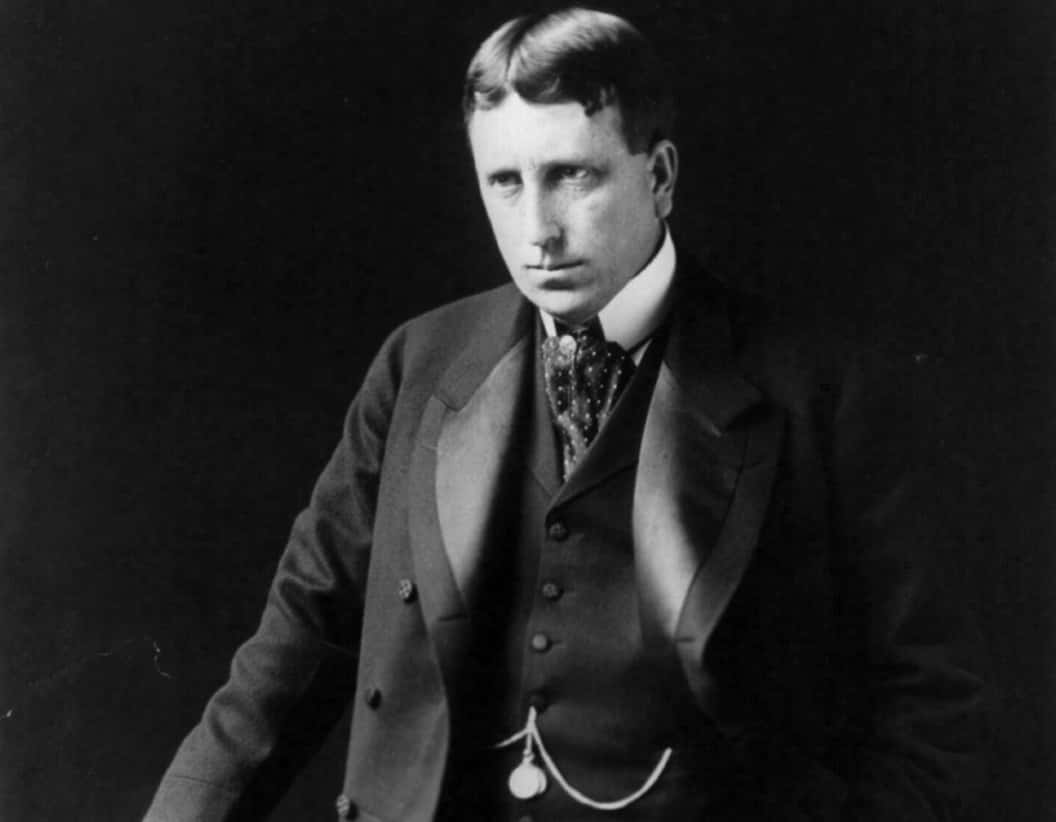 Wikimedia Commons, B. M. Clinedinst
Wikimedia Commons, B. M. Clinedinst
43. He Made An Enemy of Hearst
Hearst was not a fan of the cinematic hit piece that was Citizen Kane and he pursued a lifelong vendetta against both Orson Welles and Mankiewicz. The magnate's newspapers and radio stations didn’t mention the film and refused to advertise for it. Hearst employees actually tried to block and restrict its distribution. With that kind of heat, I would be trying to pass off writing credits…not claim them.
44. His Stolen Bicycle Might Stand In For A Sled
Finally, and foremostly, the final shred of evidence that Citizen Kane was, in fact, Mankiewicz’s brainchild…Your honor, I present this bicycle: “Rosebud”—the central theme of the film’s plot—was a reference to a very important bicycle stolen from Mankiewicz when he was a child living in Pennsylvania. I rest my case…almost.
45. He Was Put On “Probation”
Mankiewicz’s self-destructive habits were well-known and by the time his shot at redemption came around, he was on the verge of collapse. Orson Welles allegedly had to hire film producer John Houseman just to keep Mankiewicz sober during the drafting of the screenplay for Citizen Kane. And no, contrary to popular belief, Mankiewicz did not dictate the entire thing from his sickbed with a broken leg.
46. He May Have Regretted It All
Wonderful as his life and career certainly were, Mankiewicz was also a woeful character in his own life. His Hollywood career—for all that it made him successful—is best described by the man himself in one tragic quote; “I don't know how it is that you start working at something you don't like, and before you know it you're an old man". I guess he never found his “rosebud".
47. He Followed The Yellow Brick Road
Mankiewicz was the first of ten screenwriters assigned to one of the most iconic and legendary Hollywood films of all time. No, I’m not talking about Fast and Furious. I’m talking about…The Wizard of Oz! It was Mankiewicz’s idea to film “the Kansas sequence” in black and white to contrast the drab real world with the colorful and magical Oz. For his visionary storytelling, Mankiewicz received exactly no credit for this film.
 Wikimedia Commons, CBS Television Network
Wikimedia Commons, CBS Television Network
48. He May Have Put Hidden Meaning In Citizen Kane
As far as I can tell, Orson Welles never presented any background for the “rosebud” theme of Citizen Kane. Of course, Mankiewicz had his “stolen bicycle” story to go with and another…less than child-friendly explanation. Some suggest there is a more, how should we put it, sordid origin for “rosebud” that Mankiewicz, being on “story-swapping terms” with Hearst may have been privy to.
It involves Davies’ and Hearst’s love affair. Let’s just leave it at that.
 Citizen Kane (1941), RKO Radio Pictures
Citizen Kane (1941), RKO Radio Pictures
49. He Won An Oscar
All is well that ends well, or so they say. Despite all of the controversy around who wrote the film—or maybe because of it—Mankiewicz and Welles were both credited at the end of the day. In fact, Welles and Mankiewicz received the Academy Award for Best Original Screenplay for Citizen Kane. But, after all that drama, it was a bit anti-climactic…
50. He Skipped The Ceremony
Going into the 14th Annual Academy Awards, it seemed unlikely that Citizen Kane was going to walk away with gold. So unlikely in fact that neither Mankiewicz nor Welles attended the dinner ceremony. Mankiewicz was in South America filming another movie and with the odds stacked against him, his wife claimed, “He did not want to be humiliated".
Crying shame, he missed his moment to shine. And he wouldn’t get another…
51. He Fell Prey To His Own Condition
Mankiewicz would ultimately succumb to his drinking habit, passing of uremic poisoning at the age of 55. About his condition, he wrote, “I seem to become more and more of a rat in a trap of my own construction, a trap that I regularly repair whenever there seems to be danger of some opening that will enable me to escape. I haven’t decided yet about making it bombproof. It would seem to involve a lot of unnecessary labor and expense".

